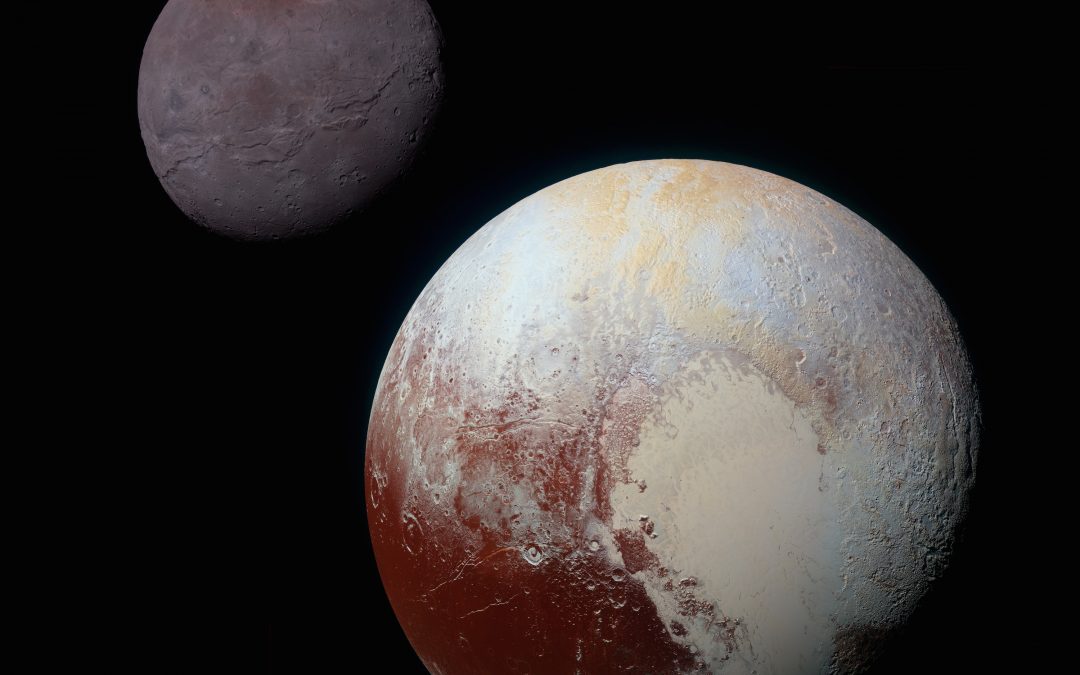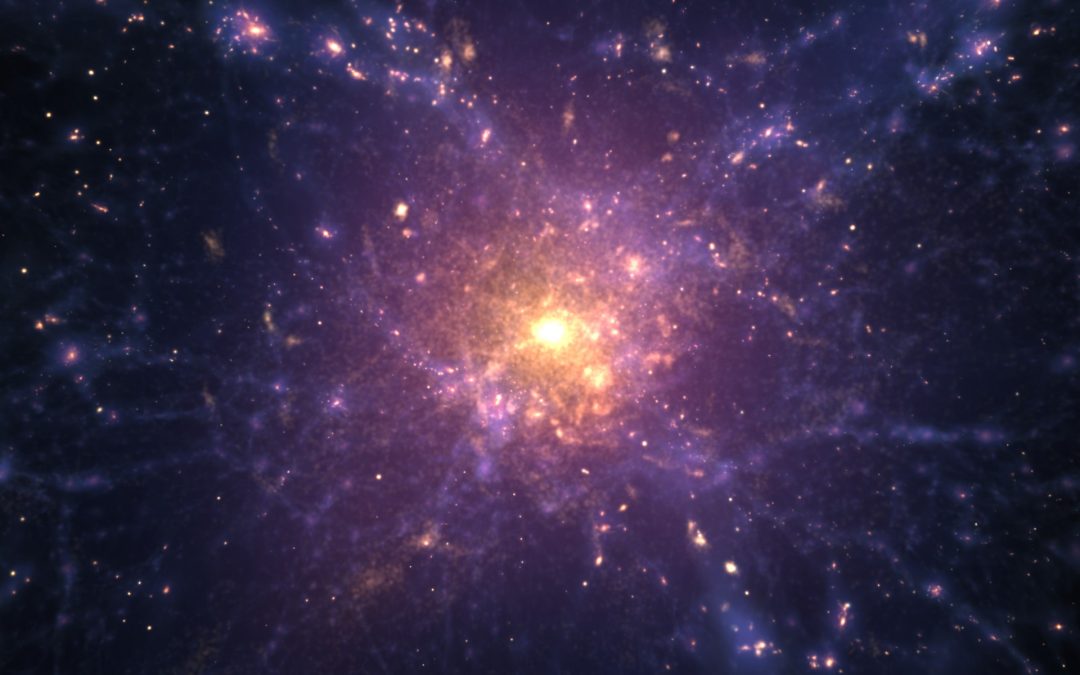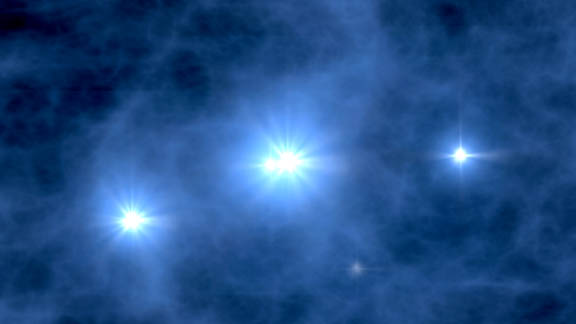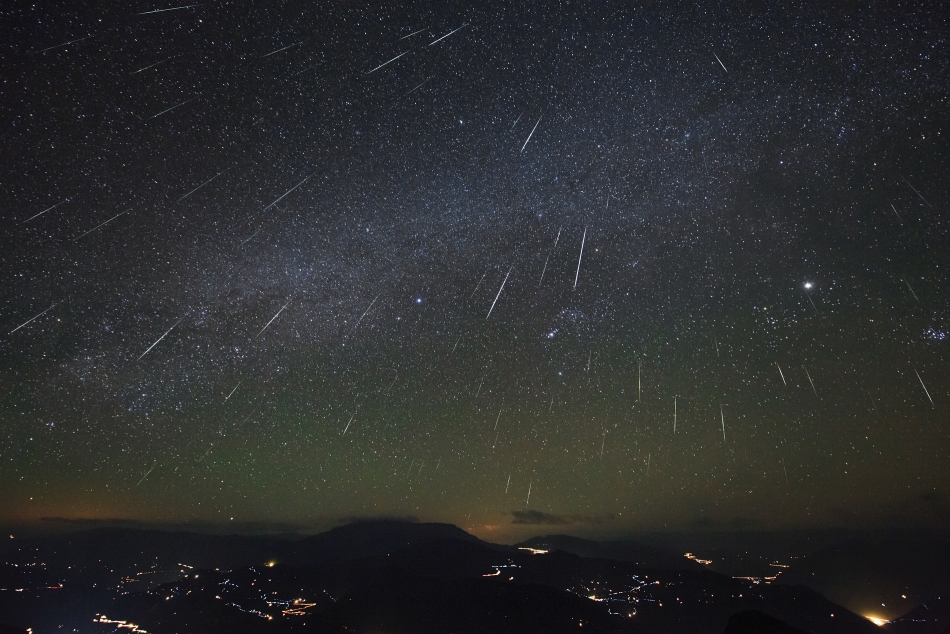Well, we did it. We made it to episode 666, an auspicious number to be sure. What can we do to celebrate this accomplishment? An episode all about things in the Universe that have been named after mythological people and places in the underworld?



Fraser Cain
Universe Today

Dr. Pamela Gay
CosmoQuest

Well, we did it. We made it to episode 666, an auspicious number to be sure. What can we do to celebrate this accomplishment? An episode all about things in the Universe that have been named after mythological people and places in the underworld?

The Cosmic Microwave Background Radiation tells us so much about the Universe. After that era, the Universe went dark. Then, as gas pulled together into the first stars and eventually galaxies, light returned, beginning the Age of Reionization.

The Sun is a third generation star, polluted with the metals from long dead stars. Astronomers have also discovered second generation stars, with very low metallicity. But theories suggest there must be a first generation, with stars made from only pure hydrogen and helium. Can we ever find them?

We generally save our stargazing suggestions for the summer, when it’s warmer in the northern hemisphere. But you’re tough, you can handle a little cold. And it’s worth it because there are some wonderful things you can see in the night sky this time of year.
Recent Episodes
Where on Earth did our water come from. Well, obviously not from Earth, of course, but from space. But did it come from comets, or did the water form naturally right here in the Solar System, and the Earth just scooped it up? Download the show [MP3] | Jump to...
It hard to think of a more influential modern planetary scientist than Carolyn Porco, the leader of the imaging team for NASA's Cassini mission exploring Saturn. But before Cassini, Porco was involved in Voyager missions, and she'll be leading up the imaging team for...
Maria Zuber is one of the hardest working scientists in planetary science, being a part of six different space missions to explore the Solar System. Currently, she's the lead investigator for NASA's GRAIL mission. Download the show [MP3] | Jump to Shownotes | Jump to...
Jocelyn Bell Burnell is an Irish astronomer, best known for being part of the team that discovered pulsars, and the following controversy when she was excluded from the Nobel Prize winning team. Download the show [MP3] | Jump to Shownotes | Jump to Transcript This...
Margaret Geller is best known for her work on the large scale structure of the Universe, helping us understand the large clusters, super clusters and cosmic filaments that matter clumps into. Download the show [MP3] | Jump to Shownotes | Jump to Transcript This...
Our focus on female astronomers continues with Sandra Faber, and Professor of Astronomy at UC Santa Cruz. Faber was part of the team that turned up the Great Attractor, a mysterious mass hidden by the disk of the Milky Way. Download the show [MP3] | Jump to Shownotes...
It's time for another series. This time we'll be talking about famous female astronomers. Starting with: Vera Rubin, who first identified the fact that galaxies rotate too quickly to hold themselves together, anticipating the discovery of dark matter. Download the...
An object at rest stays at rest, and object in motion tends to stay in motion. This is inertia, defined famously by Isaac Newton in his First Law of Motion. Download the show [MP3] | Jump to Shownotes | Jump to Transcript This episode is sponsored by: Swinburne...
Getting stuff into space is complicated and expensive. And what do you do when your fancy space gadget breaks. You print out a new one, of course, with your fancy space 3D printer. It turns out, space exploration is one of the best uses for this technology. Download...
We were witness to a once in a million year event. A close approach of Comet Siding Spring to the Planet Mars. And fortunately, humanity had a fleet of spacecraft orbiting the Red Planet, ready to capture this monumental event in real time. What did we see? What will...
You think we’re the only place that experiences seasons? Well, think again. Anything with a tilt enjoys the changing seasons, and that includes one of the most dramatic places in the Solar System: Saturn, with its rings and collection of moons. Download the show [MP3]...
Where ever we find water on Earth we find life. And so, it makes sense to search throughout the Solar System to find water. Well, here's the crazy thing. We're finding water just about everywhere in the Solar System. This changes our whole concept of the habitable...
Live from DragonCon 2014! Fraser and Pamela are joined by Les Johnson, Scott Edgington, Erin MacDonald, Roy Kilgard, and Fraser bombards all of these wonderful scientists with the hardest, most complicated questions he can come up with! Dr. Erin MacDonald holds a PhD...
Astronomy Cast's 2014/15 season begins! With Rosetta's arrival at Comet 67/P, we're about to see a comet up close and personal. What will it take to explore, exploit and enjoy the asteroids and comets hurtling around our Solar System. And how does science fiction have...
SpaceShipOne is the spacecraft created by Scaled Composites to win the $10 million Ansari X-Prize in 2003. It was the first privately built spacecraft to reach 100 km in altitude, twice in two weeks, carrying the equivalent of 3 people. It's the prototype of the...
Before the Apollo Program, there was the Gemini Program, and before Gemini came the Mercury Program. 7 elite astronauts chosen from a pool of military test pilots. How did NASA choose these original 7 men? Download the show [MP3] | Jump to Shownotes | Jump to...
Although NASA is spread across the entire US, the headquarters is based right in Washington, DC. And the headquarters building is known as Two Independence Square. This is where past and future space policy for the agency was developed. Ep. 348: Places with Numbers: 2...
Live from BaltiCon with special guest, author P.G. Holyfield, talking about his projects. <Download the show [MP3] | Jump to Shownotes | Jump to Transcript> This episode is sponsored by: Swinburne Astronomy Online, 8th Light Show Notes UPDATE: Due to the...
Who knows what mysteries lurk at the military's Area 51 complex in Nevada? Conspiracy theorists and UFO chasers think it's a big alien cover-up. But it's probably something more boring, like advanced military aircraft. Let's talk about what we know, and what we think...
Almost every historic American launch occurred at one place in Cape Canaveral: Launch Complex 39. Good old LC39 was build for the Apollo spacecraft, and then modified for the Space Shuttle program. And now it's carrying on this tradition for upcoming SpaceX rockets....